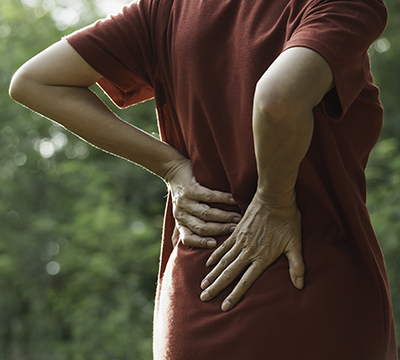 You feel the twinge in your back or your neck, and you wonder: What’s causing that pain?
You feel the twinge in your back or your neck, and you wonder: What’s causing that pain?
There could be any number of causes, and it can take experts, like those at Wake Forest Baptist Health’s Orthopaedics and Sports Medicine – High Point, to get to the bottom of it.
“Sometimes it’s obvious, but many times it can be tricky to find out where that pain is coming from,” says Tadhg O’Gara, M.D., who specializes in orthopaedics and spine surgery at Wake Forest Baptist. “Pain may be coming from the disc itself, the facet joints in the back or from a pinched nerve. We can help identify what that pain is and provide the best treatment for your condition.”
Myths about Back Pain
There are a number of myths about back pain, according to O’Gara. For one, as we age, bulging or degenerative discs are far more common and more normal than people think.
“They’re like gray hair,” O’Gara says. “If you have gray hair, it is normal to have these degenerative or bulging discs. As time goes on, they all degenerate. It’s one of the downsides of getting older. Sometimes this causes pain, but there are ways to help the back age in a healthy manner.”
Another myth, he says, involves core or abdominal strengthening, which can actually make back pain worse.
“In many situations, it’s best to have an arched back,” O’Gara says. “Think of good weightlifters who keep their back arched when they do squats. It’s important to keep that back arched because it keeps pressure off the discs and protects the back. This especially true for those with scoliosis. The No. 1 predictor of progression of scoliosis in adults are those who have a flat back.”
Some people may think their weight is causing back pain, but O’Gara says studies show there is no correlation between body mass index (BMI) and back pain for those who are heavy or just a little overweight.
Seeing a Spine Expert
There are some red-flag signs of pain that indicate a back or neck condition may be getting worse. O’Gara says those signs include:
- Having consistent pain lasting longer than a few weeks
- Being awakened at night with pain
- Having a history with cancer and suddenly feeling pain
- Experiencing weakness or trouble with your bowel or bladder that’s associated with back or neck trouble
- Having balancing problems or difficulty using your hands
“These are all signs that you should absolutely come in and see one of our spine experts,” O’Gara says.
The keys to diagnosing the situation include understanding what the patient says about the pain, the patient’s medical history, an x-ray and a physical exam. The x-ray helps identify major signs like a broken bone or stress fracture that could have occurred as far back as childhood. An MRI may also be used.
Correcting posture, through a technique known as McKenzie Physical Therapy, is often used as an initial nonsurgical treatment.
“We have trained physical therapists on-site to help patients with this,” O’Gara says. “We often also start with over-the-counter medications and injection treatments before any surgical intervention.”
If surgery is required, O’Gara says Wake Forest Baptist’s Orthopaedic and Spine experts have many different state-of-the-art options to offer, depending on the patient’s age and condition.
“Often, we like to use a microsurgical option, which is great for a lot of people,” he says. “Others may need more extensive reconstruction or a spinal fusion. We encourage patients to ask questions, and we will work with them to select the right surgery for them. Not every surgery is right for every patient.”
Experts to Guide Your Care
Whether a surgical or nonsurgical approach is taken, O’Gara says the Orthopaedics and Spine team has the needed expertise to relieve the pain.
“We have a team of fantastic orthopaedic spine surgeons, physical medicine and rehabilitation physicians, physical therapists, pain management specialists and doctors trained in bone health and osteoporosis,” he says. “We also have excellent advanced practitioners who can help get you seen quickly and help you manage your medications. We really have a great comprehensive team of experts here to guide every aspect of your care.”
We have two convenient locations in High Point to serve you. Orthopaedics and Sports Medicine – High Point is located at 611 Lindsay Street, call 336-905-6100. Orthopaedics – Premier is located at 4515 Premier Drive, call 336-802-2250.
